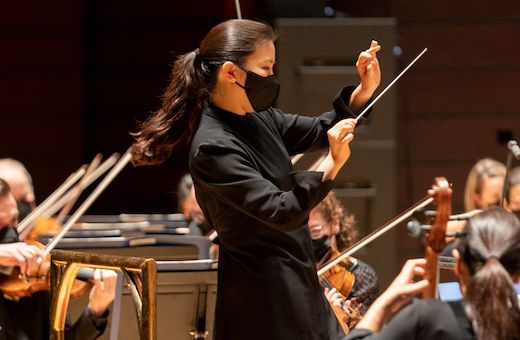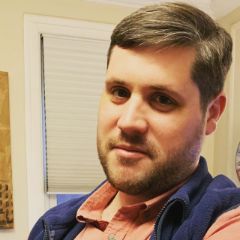Last week, The Philadelphia Orchestra offered the subscription debut of Florence Price’s Symphony no. 1 in E minor, a work that has quickly become central to their repertory. This past weekend, they turned to its progenitor, a work they know in their bones. Dvořák’s Symphony no. 9 in E minor, “From the New World” has been a fixture in Philadelphia since 1902, and a season rarely goes by without its appearance. Here, it anchored the promising local introduction to conductor Eun Sun Kim, who led a program that celebrated the sweep of American music and showed that large scale Romanticism very much still has a place in the concert hall.

Dvořák was not American, of course, and the unmistakable stamp of his homeland is evident in the repeated themes and the mournfulness of the prevailing minor key. Yet the composer also captured the breadth and wonder of American sound, famously weaving in spirituals and taking inspiration from the country’s poetry and tall tales. The total effect announces the serious musical possibilities offered by the New World. Kim’s reading of this famous score was somewhat short on personality, and she had issues with tempi in the Largo movement, with some abrupt climaxes that made the overall effect seem ragged. But her interpretation highlighted Dvořák’s lush writing for individual instruments – especially the flute solos that float above the orchestra in the first movement – and his brilliant use of contrasting textures. The performance also had a clear narrative focus throughout.
Kim, who is in her first season as music director of the San Francisco Opera, brought more individual flair to the world premiere of Mason Bates’ The Rhapsody of Steve Jobs. Excerpted from the composer’s 2017 opera about the late founder of Apple, the 15-minute suite pulses with a technological undercurrent despite featuring no electronica. Strings and woodwinds swirl through the opening motif in a manner that recalls a computer processing code. But the music turns almost immediately to an expansive, cinematic sweep – think Elmer Bernstein scoring Hud, or even Copland. It’s probably no accident that Bates, a native Philadelphian now based in Northern California, chose to evoke Western soundtracks in his depiction of the man who colonized Silicon Valley. The choice is a smart one that further banishes the concept of “movie music” as a pejorative. The programmatic piece ends with a sweet aria for Jobs’ widow, Laurene, that celebrates the natural beauty to be found just beyond the iPhone screen.
This was Bates’ second Philadelphia premiere in the span of a month, following the debut of his Piano Concerto for Daniil Trifonov. In both cases, he showed himself unafraid to express himself with rich harmonics and emotional transparency. In that sense, his music pairs well with another local-born composer, Samuel Barber, whose Violin Concerto returned to Verizon Hall after a 13-year absence. As soloist, associate concertmaster Juliette Kang brought all the qualities for which she is valued in the orchestra – none more so than the enveloping richness of her tone. She and Kim handled the shifts in Barber’s writing with practiced ease, making the shift from the refined Allegro to the histrionic Andante seem a natural progression. (Kim also drew out Alpine undertones in the second movement – a Straussian influence perhaps?) The perpetual-motion finale was played with appropriate abandon, with Kang’s solo line always maintaining the dominant hand. Within the orchestra, Kang had an ideal partner in principal oboe Philippe Tondre, whose lean, transparent tone made a superb counterpoint in the second movement’s opening bars.


